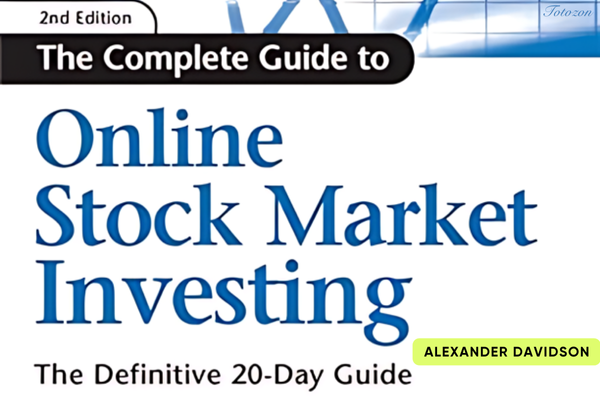-
×
 The Orderflow Masterclass with PrimeTrading
1 × $17.00
The Orderflow Masterclass with PrimeTrading
1 × $17.00 -
×
 The Trading Blueprint with Brad Goh - The Trading Geek
1 × $5.00
The Trading Blueprint with Brad Goh - The Trading Geek
1 × $5.00 -
×
 The A14 Weekly Option Strategy Workshop with Amy Meissner
1 × $23.00
The A14 Weekly Option Strategy Workshop with Amy Meissner
1 × $23.00 -
×
 Home Run Options Trading Course with Dave Aquino - Base Camp Trading
1 × $11.00
Home Run Options Trading Course with Dave Aquino - Base Camp Trading
1 × $11.00 -
×
 $20 – 52k 20 pips a day challange with Rafał Zuchowicz - TopMasterTrader
1 × $5.00
$20 – 52k 20 pips a day challange with Rafał Zuchowicz - TopMasterTrader
1 × $5.00 -
×
 Forecast 2024 Clarification with Larry Williams
1 × $15.00
Forecast 2024 Clarification with Larry Williams
1 × $15.00 -
×
 TRADING NFX Course with Andrew NFX
1 × $5.00
TRADING NFX Course with Andrew NFX
1 × $5.00 -
×
 WondaFX Signature Strategy with WondaFX
1 × $5.00
WondaFX Signature Strategy with WondaFX
1 × $5.00
Complete Guide to Online Stock Market Investing (2nd Edition) with Alexander Davidson
$6.00
File Size: Cooming soon!
Delivery Time: 1–12 hours
Media Type: Online Course
Content Proof: Watch Here!
You may check content proof of “Complete Guide to Online Stock Market Investing (2nd Edition) with Alexander Davidson” below:

Complete Guide to Online Stock Market Investing (2nd Edition) with Alexander Davidson
Introduction
Investing in the stock market can be a daunting task, especially for beginners. Alexander Davidson’s “Complete Guide to Online Stock Market Investing (2nd Edition)” aims to simplify this process, providing a comprehensive roadmap for online stock market investing. This article delves into the key principles and strategies outlined in Davidson’s guide, helping you navigate the complexities of the stock market with confidence.
Who is Alexander Davidson?
Background and Expertise
Alexander Davidson is a seasoned financial journalist and author known for his expertise in personal finance and investment strategies. His books are widely acclaimed for their practical insights and easy-to-understand language.
Notable Works
In addition to the “Complete Guide to Online Stock Market Investing,” Davidson has authored several other influential books on finance, including “How to Understand the Financial Pages” and “The Money Myth.”
Why Invest in the Stock Market?
Benefits of Stock Market Investing
Investing in the stock market offers numerous benefits, such as:
- Potential for High Returns: Historically, the stock market has provided higher returns compared to other investment avenues.
- Liquidity: Stocks are relatively easy to buy and sell, offering high liquidity.
- Diversification: Investing in a variety of stocks can help spread risk.
Risks Involved
However, stock market investing also comes with risks:
- Market Volatility: Stock prices can fluctuate widely in short periods.
- Economic Factors: Economic downturns can negatively impact stock prices.
- Company Performance: Poor performance by a company can lead to losses.
Getting Started with Online Stock Market Investing
Setting Up an Online Brokerage Account
The first step in online stock market investing is setting up an online brokerage account. Key factors to consider include:
- Fees and Commissions: Compare the cost structures of different brokers.
- User Interface: Choose a platform that is user-friendly and offers robust tools.
- Customer Support: Ensure the broker provides reliable customer service.
Researching Stocks
Research is crucial for making informed investment decisions. Utilize resources like:
- Financial News: Stay updated with the latest market news.
- Company Reports: Analyze annual and quarterly reports.
- Stock Screeners: Use online tools to filter stocks based on specific criteria.
Developing an Investment Strategy
Long-Term vs. Short-Term Investing
Decide whether you want to focus on long-term or short-term investments. Long-term investing typically involves buying and holding stocks for several years, while short-term investing may involve frequent trading.
Growth vs. Value Investing
- Growth Investing: Focuses on companies expected to grow at an above-average rate.
- Value Investing: Involves buying undervalued stocks that are expected to appreciate over time.
Building a Diversified Portfolio
Importance of Diversification
Diversification reduces risk by spreading investments across various sectors and asset classes. A diversified portfolio might include:
- Stocks: From different industries and geographies.
- Bonds: To provide stability and reduce volatility.
- Mutual Funds and ETFs: For broad market exposure.
Rebalancing Your Portfolio
Regularly review and rebalance your portfolio to maintain your desired asset allocation. This involves selling overperforming assets and buying underperforming ones.
Understanding Market Indicators
Technical Analysis
Technical analysis involves studying historical price movements and trading volumes to predict future price movements. Key tools include:
- Charts and Graphs: Visual representation of stock performance.
- Indicators: Moving averages, RSI, and MACD.
Fundamental Analysis
Fundamental analysis evaluates a company’s financial health and growth prospects. Key components include:
- Earnings Reports: Quarterly and annual earnings.
- Revenue and Profit Margins: Indicators of financial performance.
Risk Management Techniques
Setting Stop-Loss Orders
A stop-loss order automatically sells a stock when it reaches a certain price, limiting potential losses.
Position Sizing
Determine the amount to invest in each stock to avoid overexposure to any single investment.
Diversification
As mentioned, spreading investments across various assets can mitigate risk.
The Psychology of Investing
Emotional Control
Successful investing requires managing emotions like fear and greed. Develop a disciplined approach to stick to your investment strategy even during market volatility.
Patience and Discipline
Investing is not a get-rich-quick scheme. Patience and discipline are essential for long-term success.
Staying Informed and Educated
Continuous Learning
The stock market is constantly evolving. Stay informed by reading financial news, attending webinars, and participating in investment courses.
Networking
Join investment clubs and online forums to exchange ideas and learn from other investors.
Practical Tips for Online Stock Market Investing
Start Small
Begin with a small investment and gradually increase your exposure as you gain experience and confidence.
Use Technology
Leverage online tools and mobile apps to monitor your investments and stay updated on market trends.
Seek Professional Advice
Consider consulting a financial advisor, especially if you are new to investing or dealing with complex financial situations.
Conclusion
The “Complete Guide to Online Stock Market Investing (2nd Edition)” by Alexander Davidson provides a thorough roadmap for navigating the complexities of the stock market. By following Davidson’s guidance on setting up an online brokerage account, researching stocks, developing an investment strategy, and managing risk, you can build a diversified portfolio and achieve long-term financial success.

FAQs
1. What are the key benefits of stock market investing?
Stock market investing offers potential for high returns, liquidity, and diversification.
2. How can I start investing in the stock market online?
Start by setting up an online brokerage account, researching stocks, and developing an investment strategy.
3. What is the importance of diversification in investing?
Diversification spreads risk across various assets, reducing the impact of any single investment’s poor performance.
4. How can I manage risks in stock market investing?
Use techniques like setting stop-loss orders, determining appropriate position sizes, and diversifying your portfolio.
5. Why is continuous learning important in stock market investing?
The stock market is dynamic. Continuous learning helps you stay informed about new trends and strategies.
Be the first to review “Complete Guide to Online Stock Market Investing (2nd Edition) with Alexander Davidson” Cancel reply
You must be logged in to post a review.
Related products
Forex Trading
Forex Trading
Forex Trading
Forex Trading
Forex Trading
Forex Trading
Forex Trading
Forex Trading
Forex Trading
Forex Trading
Forex Trading
Forex Trading














Reviews
There are no reviews yet.